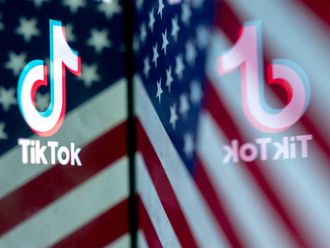New York: The man stood at the podium in the cramped Masjid Un-Noor mosque on Staten Island as hundreds of Muslims sat barefoot on the carpet before him, facing east, just before the start of Friday prayers. In his outstretched right hand, he held up a tiny US flag and a pocket-size copy of the US constitution.
“This unites us,” said the man, Suhail Muzaffar, a leader at the mosque. “It is not Christian, it is not Buddhist, it is not Muslim.”
“Please,” he added. “Find time to look at this document.”
The scene, charged with symbolism, had a familiarity for many in the crowd. After the prayers, one man in the congregation approached Muzaffar and told him, “You looked just like Khizr Khan.”
He was referring, of course, to the Pakistani immigrant whose tribute to his son, an army captain killed in combat, electrified the Democratic National Convention (DNC) in what became a memorable moment in the presidential campaign, caused sales of pocket-size copies of the constitution to skyrocket and galvanised US Muslims eager to answer the anti-Muslim rhetoric of Donald Trump, the Republican presidential nominee.
A month and a half after that speech, what might be called the Khizr Khan effect was as palpable as ever in this small Muslim community on Staten Island. After the prayers, a group of high school students passed out 200 miniature copies of the constitution, accompanied by an equal number of US flags, to mosque members, in hopes that reading it would remind them of their rights as Americans.
Mohammad Manhal Hussain, 17, who is known as Manhal, was an intern at the mosque this summer. He was helping Muzaffar organise a voter-registration drive when he watched Khan deliver his convention speech.
“It’s powerful to see a Muslim man standing and giving a speech at the DNC,” he said. “That got us all on our toes.”
He said he had asked Muzaffar if the mosque could order a shipment of the small copies of the constitution to distribute to the congregation on Friday, the day before the anniversary of the constitution’s signing in 1787. He thought it would help affirm for the congregation’s members that their rights as US citizens were clear, despite what they might hear from Trump and other politicians.
“It’s a sense of comfort,” Manhal said. “If they’re saying my rights don’t fit, then theirs don’t either.”
Muzaffar said that reading the constitution was especially important for congregants of his who had recently immigrated from Pakistan and were more in tune with the politics of their home country than they were with politics in the United States.
He said he hoped it would also help the mosque’s broader effort to increase voter registration among members, mirroring a nationwide push by Muslim leaders to encourage US Muslims to make their voices heard in this year’s election.
Robert McCaw, director of government affairs at the Council on American-Islamic Relations, a national advocacy group, said the Muslim vote could help tip the election, given the large numbers of Muslim voters in swing states like Florida, Ohio and Virginia.
In Staten Island, a Republican stronghold and New York City’s least ethnically diverse borough, Muzaffar said he felt that Muslim residents had a crucial duty to vote.
“You want to fight back?” he said. “There is no bigger bullet than the ballot.”
Estimates of the Muslim population in the city vary widely, from a few hundred thousand to more than 1 million. Of the five boroughs, Staten Island has the fewest Muslims, said Abdul Bhuiyan, secretary-general of the Majlis Ashura, the Islamic Leadership Council of New York.
Brooklyn, the borough with the largest Muslim population, has more than 70 mosques, he said; Staten Island has about a half-dozen.
There were no mosques on Staten Island before the mid-1980s, Muzaffar said. Masjid Un-Noor was its first. But, he added, “the face of Staten Island is changing.” He estimated that about 10,000 Muslims may live in the borough now.
Manhal, the summer intern, said the goal was to persuade 1,500 members of the roughly 600-family congregation to register to vote. More than 700 had signed up so far, he said.
With that kind of clout, he said, “we have a form of power, a form of strength within our community.”












